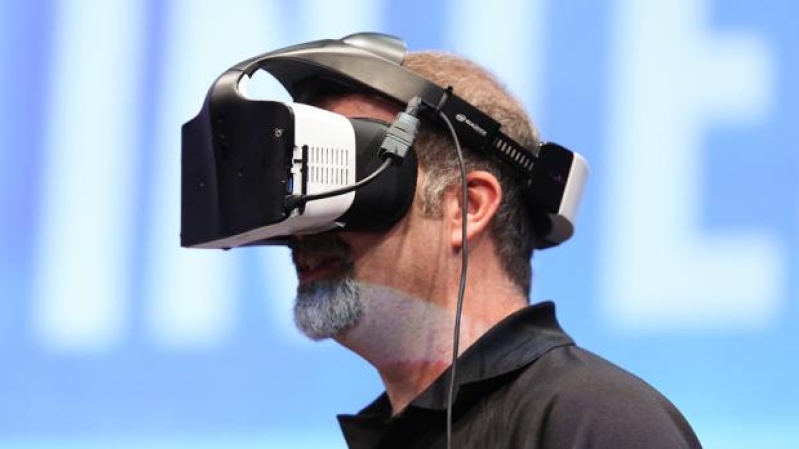
A Microsoft and Intel collaboration, called Project Evo, aims to make Virtual Reality (VR) more accessible and affordable to more users.
Project Evo is set to offer VR and other immersive technologies to tech fans who are unable to pay hundreds to thousands of dollars for VR sets as offered by HTC, Facebook and Google among others. Project Evo is built to be compatible with specific PCs and laptops, so users do not have to buy separate kits to make VR headsets work.
Navin Shenoy, General Manager of Intel's PC group, says that Project Evo is "a deep collaboration with Microsoft to further push the boundaries of personal computing."
For this project, Microsoft and Intel will be utilizing, remodeling and maximizing Intel's "Skylake," its sixth-generation core processor; and "Kaby Lake," another of Intel's seventh-generation processor.
The upcoming VR set, dubbed as an "Evo-class PC" owing to the new technology's compatibility with PCs and laptops, will be screened on a 4K format. Due to this high resolution and the high power needed to run, Evo-class PCs will have the following specifications:
CPU: Intel Mobile Core i5 dual-core with hyperthreading
GPU: Integrated Intel HD Graphics 620 (GT2) equivalent or greater
RAM: 8GB+ dual-channel required for integrated graphics
HDMI: HDMI 1.4 with 2880x1440 @ 60 Hz, or HDMI 2.0 or DP 1.3+ with 2880x1440 @ 90 Hz
Storage: 100GB+ SSD (preferred) / HDD
USB: USB 3.0 Type-A or USB 3.1 Type-C Port with DisplayPort Alternate Mode
Bluetooth: Bluetooth 4.0 for accessories
Evo-class PCs will be offered at a lower cost compared to other VR sets, but users should expect that these PCs will not deliver the same seamless VR experience. However, these PCs can be an all-rounder and can be VR sets, can offer other immersive technologies, 'and' be PCs at the same time.
Alex Kipman of Microsoft says of the project, "We've unified the platform." Tech giants Microsoft and Intel hope that through this collaboration, many game development and software companies will want to be in partnership with them, too.
Kipman says it's not a far-off idea that other companies will be interested to join once Evo-class PCs are launched. Set to launch this 2017, Microsoft and Intel have also collaborated with Dell, Acer, Asus and China's 3Glasses for a yet-to-be announced product.
The massive price difference of Evo-class PCs compared to expensive VR sets such as Samsung Gear VR and Google Daydream View sets Project Evo as a highly sought-after all-around affordable VR set for those who want to take part in the new VR revolution.






